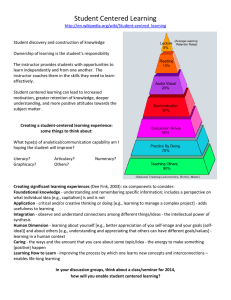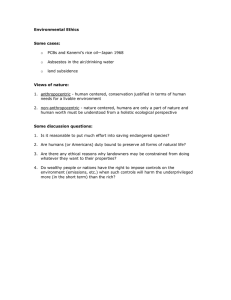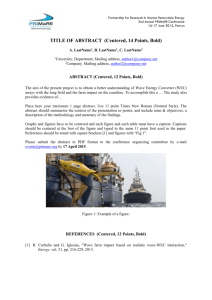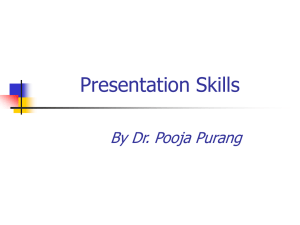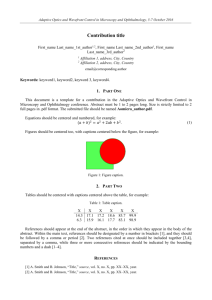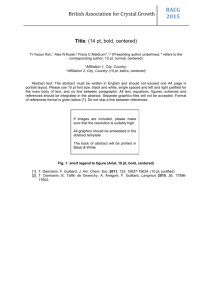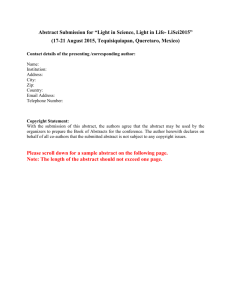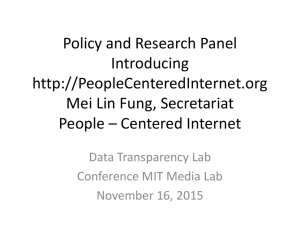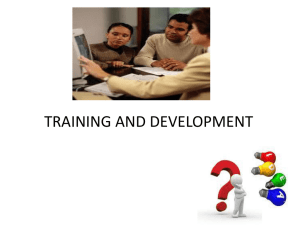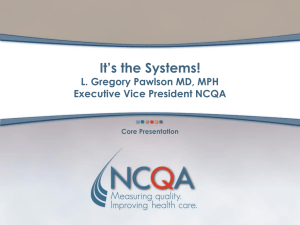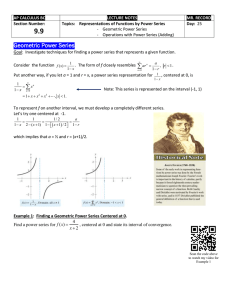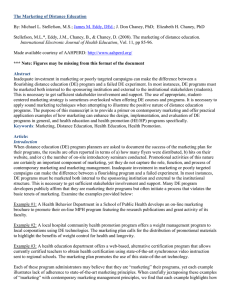Parent Summit 2015 Getting to Know You PPT Machonis
advertisement
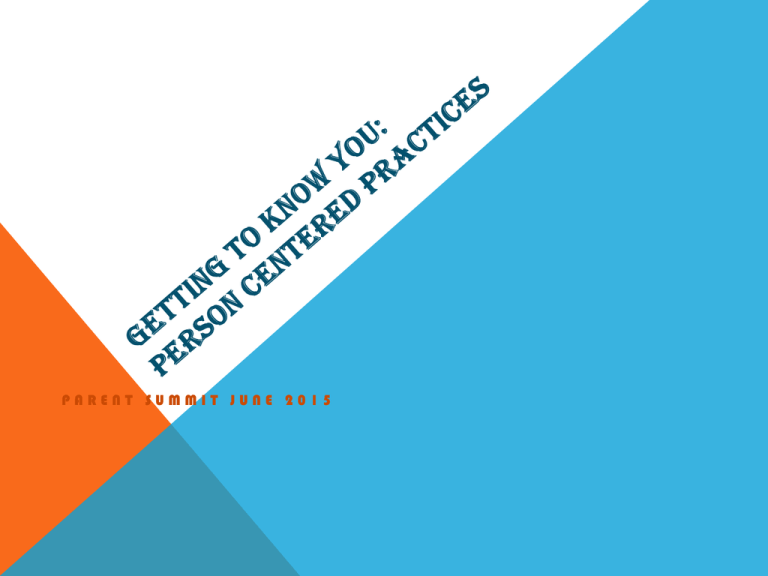
PARENT SUMMIT JUNE 2015 PERSON CENTERED PRACTICES? • • • • • PC approaches PC description PC planning PC thinking PC practices PERSON CENTERED PRACTICES Works for humans Helps support rather than fix Propels the learning cycle Affirms the belief that everyone can learn ONE DEFINITION Values & actions that • Focus on the preferences and needs of a person, • Empower and support a person in defining the direction for his/her life, • Support a person in a web of relationships, both natural & paid within their communities, • Recognize and value people for their contributions (current & potential) to their communities. LEADERS IN THE FIELD • • • • • Carl Rogers Michael Smull/Susan Burke Harrison Beth Mount Jack Pearpoint/Marsha Forest John O’Brien WORDS MATTER • Person First language • Different vocabulary acts to separate WORDS MATTER “Think twice before you speak, because your words and influence will plant the seed of either success or failure in the mind of another.” Napoleon Hill “Words are the guides to acts; the mouth makes the first move.” Rabbi Leon da Modena 17th cen Venice LANGUAGE My daughter • • • • • • • • • • • Transitioned from high school Is high functioning Took therapeutic riding Was placed in a job Is ‘special’ Has ‘special needs’ Is Downs Is an ‘individual’ Can’t do Was placed in the community Goes on outings My son • • • • • • • • • • • Graduated Smart, responsible Took riding lessons Found a job Guess what- so is my son Has human needs Is a young man, Jake Is a person Can do Moved out Hangs out with friends FOUNDATION OF ALL PCP • Important to • Important for • Balance between them IMPORTANT TO A person’s own definition: • Happy • Content • Fulfilled • Satisfied • Comforted IMPORTANT TO • • • • • • People to be with /relationships Status and control Things to do and places to go Rituals or routines Rhythm or pace of life Things to have ROUTINES & RITUALS Going to bed Spiritual Transition Vacation Birthday Comfort Not feeling well Celebration Holiday Grief/loss IMPORTANT TO It is important to listen to what people “say” with • words & • behavior Which do we listen to if words and behavior are in conflict? DAWN’S MORNING ROUTINE 6:15 Music goes off; hit snooze 6:23 Get up 6:25 Take shower- Paul Mitchell shampoo, dove soap 6:35 Put on lotion-cetaphil, neutrogena 6:40 Get dressed 6:50 Put on face 6:55 Brush teeth w electric toothbrush & crest 7:00 Go downstairs and hug my daughter & wish her a good morning 7:02 Pour my coffee- vanilla hazelnut 7:05 Make lunch- salad with protein 7:15 Gather my breakfast (hard boiled egg, 2 fake links, fruit) water, materials for the day & leave with my daughter YOUR MORNING RITUAL Write down your morning ritual Start with how you wake up and end with leaving or when you feel your morning routine is completed. Include favorite products you use. For example: shaving cream? Soap? Hair products? Tea? Coffee black? Soda? Quiet time? Include as much detail as you are comfortable with-do ensure you include enough details so that you can learn how to collect sufficient information Tell us how long it takes – indicate what time it starts and what time it ends. HAVE A CONVERSATION Guess Ask Write IMPORTANT FOR Issues of health & safety: • Prevention of illness • Treatment of illness / medical conditions • Promotion of wellness (e.g.: diet, exercise) • Environment • Well being ---- physical and emotional • Free from Fear IMPORTANT FOR What others see as necessary to help the person: • Be valued • Be a contributing member of their community BALANCE All choice = no responsibility All health & safety determined =dictates lifestyle PERSON CENTERED RESOURCES I Want to Work Workbook I Want a Good Life 411 Disclosure PC WEBSITES Websites on person centered practices: • www.sdaus.com • www.helensandersonassociates.co.uk • www.personcenteredpractices.org • www.learningcommunity.us
